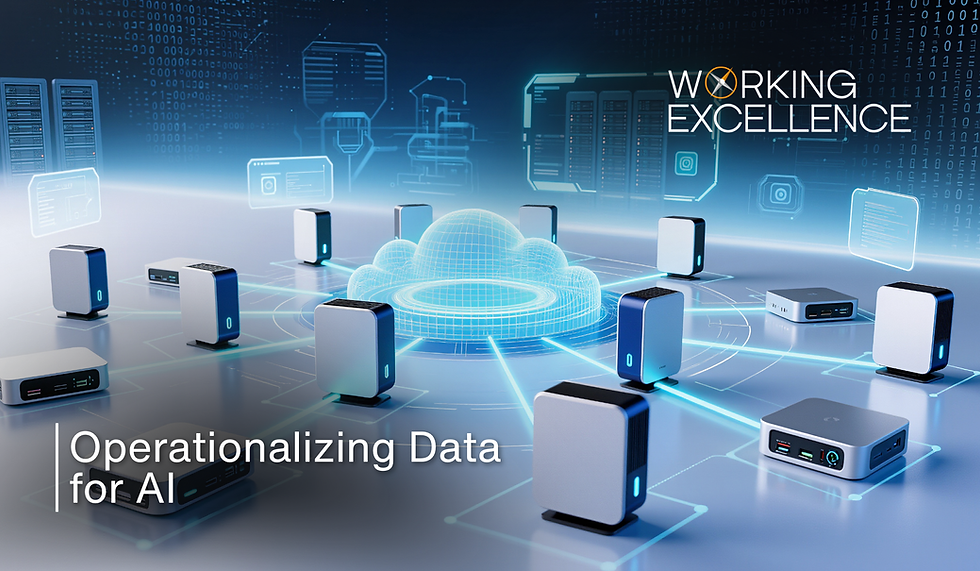Unlocking Business Potential: Transformative Opportunities with Generative AI
- Jerry Garcia

- Feb 14, 2025
- 2 min read
In a recent webinar hosted by the MIT Sloan School of Management, experts discussed the transformative potential of generative AI (GenAI) in business. Led by George Westerman, the session explored how organizations can leverage GenAI to enhance customer and employee experiences, optimize operations, and innovate business models.
Key Takeaways
Four Key Areas of Opportunity: The webinar identified four primary areas where GenAI can make a significant impact:
Augmentation, Automation, and Innovation: Participants learned how GenAI can augment existing practices, automate routine tasks, and innovate new solutions.
Emerging Business Models: The discussion highlighted the rise of new business opportunities within the GenAI space, emphasizing the need for organizations to adapt and evolve.
Understanding Generative AI
Generative AI refers to algorithms that can generate new content, from text to images, based on the data they have been trained on. This technology has the potential to revolutionize various aspects of business by:
Enhancing Customer Interactions: By personalizing experiences and providing instant support through AI-driven chatbots and virtual assistants.
Improving Employee Productivity: Automating repetitive tasks allows employees to focus on more strategic initiatives, fostering innovation and creativity.
Streamlining Operations: GenAI can analyze vast amounts of data to optimize supply chains, reduce costs, and improve decision-making processes.
Creating New Business Models: Organizations can explore new revenue streams and market opportunities by integrating GenAI into their core strategies.
The Role of Leadership in Transformation
For organizations to successfully implement GenAI, strong leadership is essential. Leaders must:
Foster a culture of innovation and experimentation.
Invest in training and development to equip employees with the necessary skills.
Encourage collaboration between IT and business units to ensure alignment on goals and strategies.
Challenges and Considerations
While the potential of GenAI is vast, organizations must also navigate several challenges:
Data Privacy and Security: Ensuring that customer data is protected while leveraging AI technologies.
Ethical Considerations: Addressing biases in AI algorithms and ensuring fair outcomes.
Change Management: Effectively managing the transition to AI-driven processes and addressing employee concerns.
Conclusion
The webinar on "Finding Transformation Opportunities With Generative AI" provided valuable insights into how businesses can harness the power of GenAI. By focusing on customer and employee experiences, optimizing operations, and exploring new business models, organizations can position themselves for success in an increasingly digital landscape. As the technology continues to evolve, staying informed and adaptable will be key to leveraging its full potential.



